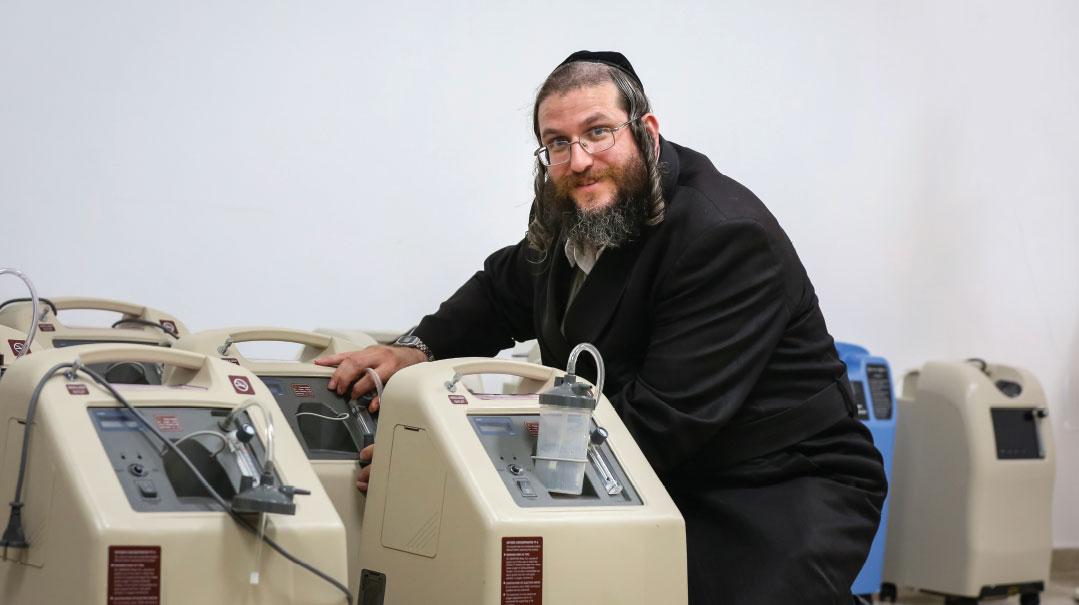The Oxygen Underground
| October 21, 2020From a Meah Shearim basement, a quiet campaign to treat COVID patients sans hospitals

The scene disclosed by an Israeli television report last week inside a Meah Shearim basement — the nerve center of a medical chesed network that has been providing home care for thousands of COVID patients over the last six months — stunned both health care professionals and the public. But the initial outrage over this medical “fifth column” notwithstanding, the public discovery has subsequently sparked a serious discussion about benefits of the home-care alternative to overcrowded, understaffed hospitals.
The subterranean storage room, home of the Chasdei Amram medical-supplies gemach, holds up to 220 oxygen machines that are loaned out to coronavirus patients for free, as well as dozens of oxygen saturation monitors and other medical equipment for the COVID-19 battle. Volunteers visit coronavirus patients in their homes several times a day, closely monitor their vitals, oxygen saturation levels, and other symptoms, and medical professionals who work with the organization decide when and if the patient should be transferred to a hospital.
Yitzchok Markowitz, founder and director of Chasdei Amram, is adamant that his program provides more hands-on treatment than the current medical establishment and lifts some of the burden off the health care system.
At least 170 people currently being treated by the volunteer network are in serious condition, and over 2,000 patients have received Chasdei Amram’s assistance over the past six months. Markowitz claims that only 10 to 15 of his patients have ended up in the hospitals, and only three out of several thousand have died.
The home-care phenomenon quickly spread beyond the insulated Meah Shearim community to other frum communities in Jerusalem and other cities, but volunteers are not discriminating — anyone who calls gets helped.
“We generally provide initial consultation, and we immediately send out the oxygen-saturation monitor and blood-pressure gauge,” Yitzchak Markowitz tells Mishpacha. “A doctor and a nurse come to their homes to take blood samples, and we transfer the samples to one of two recognized labs we work with.”
According to the strict definitions of Israeli health protocol, a patient with a saturation level of 93 or lower is considered to be in “serious” condition, so it’s safe to assume that this organization and others, such as Yad Sarah, working outside the established health system are caring for about one-fifth of the patients classified as seriously ill in Israel.
The lack of official virus figures in large swathes of the chareidi community make it difficult to draw statistical conclusions with regard to the clandestine chareidi home care network. But this trend, which Chasdei Amram was happy to finally make public, may actually upend existing systems and provide original thinking with regard to how this disease is being treated. Perhaps, as some officials have allowed themselves to wonder out loud, this model, with the proper oversight and direction, is a solution.
Oops! We could not locate your form.











